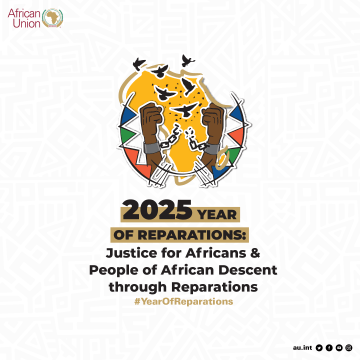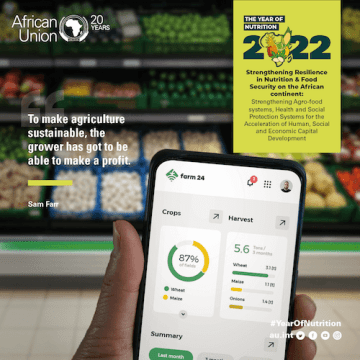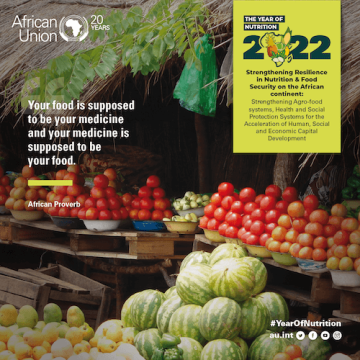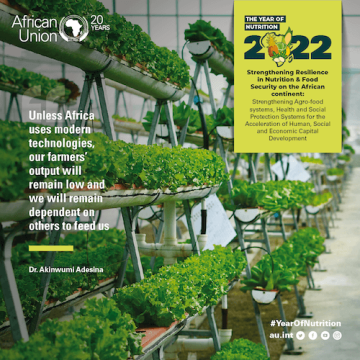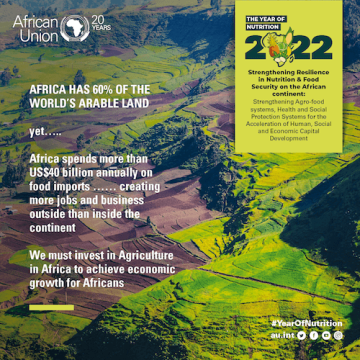TERMS OF REFERENCE
Country Review Mission (CRM): SIERRA LEONE
THEMATIC AREA: STATE RESILIENCE TO SHOCKS AND DISASTERS
PROCUREMENT NUMBER: APRM/AU/SRSD/CRM/SIERRALEONE/11/2024
- BACKGROUND
The African Peer Review Mechanism (APRM) was created by AU Member States primarily as a self-monitoring mechanism designed to promote policies, standards and practices that would lead to political stability, strong economic growth, sustainable development and acceleration of sub-regional processes and economic integration in Africa. Since its establishment in 2003, forty-four (44) Member States of the African Union have joined the APRM. Furthermore, the APRM aims to promote and facilitate self-monitoring by the Participating States, and to ensure that their policies and practices conform to the agreed political, economic, corporate governance and socio-economic values, codes and standards contained in the Declaration on Democracy, Political, Economic and Corporate Governance; and the African Charter on Democracy, Elections and Governance, as well as other relevant treaties, conventions and instruments adopted by Participating States whether through the African Union or other international platforms.
Participating countries undertake detailed review processes (including consultations with government, the private sector, civil society, and other stakeholders), culminating in a peer review exercise at the level of Heads of State and Government. A key feature of the APRM is that it is home grown. This, as well as its voluntary nature, are important in buttressing and consolidating Africa’s ownership of its development agenda. As an assessment and monitoring tool, the APRM can also help to track progress towards meeting regional and international development aspirations and commitments including AU Agenda 2063 and the Sustainable Development Goals (SDGs). The African Union and its Heads of State and Government are cognizant of this, and in January 2017, expanded the mandate of the Mechanism from core reviews in governance to also include monitoring and evaluation role for African Union Agenda 2063 and the SDGs. This reflects the confidence reposed in the Mechanism by Continental leaders and will contribute to the universalization of the APRM good governance efforts, where all AU member states will become members of the APRM.
The Central African Republic (CAR) is the latest AU member to join in February 2024. Of the 44 Member States, twenty-six (26) have already completed the first peer review process, five (5) have completed the second-generation reviews, while the rest are at different stages of the review process. Most of the countries assessed have submitted progress reports on the implementation of the recommendations made in their assessment reports and in their respective National Programs of Action (NPoAs) in order to share their experiences with other African States. The peer review process also spurs member states to consider seriously the impact of domestic policies, not only on internal political stability and economic growth, but also on neighbouring countries. This promotes mutual accountability, as well as compliance with best practices. The APRM process ensures the full participation of all stakeholders in society.
- SIERRA LEONE’S COUNTRY REVIEW MISSION CONTEXT
With an estimated population of 8,313,404 and a land area of 71 740 km², Sierra Leone is a West African resource-rich country with significant deposits of iron ore, diamonds, bauxite, rutile and gold. The country is bordered by the Republic of Guinea in the north-east, Liberia in the south-east, and the Atlantic Ocean in the south-west. Sierra Leone acceded to APRM on 4 July 2004 and is currently one of the most active member states. The country’s first Country Review Report was peer-reviewed in 2012, followed by two Progress reports which were peer-reviewed in on the implementation of the APRM National Programme of Action (NPoA) on 16 June 2015. The 3rd and 4th Progress reports were presented at the APR Forum held on the 27th of January 2018 in Addis-Ababa. Over the past decade, the country has shown exceptional commitment to good governance, with two Targeted Reviews on Health Governance and Covid-19 Response as well as Unconstitutional Changes of Government (UCG) in 2021 and 2022 respectively. The government further launched the latter on 1 November 2023 and has embarked on the implementation of its main recommendations. Over the past two years, the Mechanism was chaired by HE Julius Maada Bio, President of the Republic of Sierra Leone. The signing of the Memorandum of Understanding (MoU) on Technical Assessment during the 33rd APR Forum on 7th February 2024 by H.E. Julius Maada BIO reaffirmed his commitment to the Second-Generation review, and readiness to present Sierra Leone’s Second-Generation Review Report at the 34th APRM Forum, scheduled for February 2025.
In the context of the implementation of the Second-Generation Country Review of the Republic of Sierra Leone, the APRM invites eligible and qualified Individual Consultants to participate in the Country Review Mission to Sierra Leone in the thematic area of State Resilience to Shocks and Disasters, scheduled in December 2024.
- THE APRM PROCESS
The APRM process comprises five phases:
Phase 1 is a preparatory step at both the national and continental level. During this phase, the national Focal Point establishes the National Governance Commission (NGC) and the sensitization and awareness campaign begins. Once these prerequisites are in place, the country commences the national self-assessment stage. During this stage, the country is also required to develop a Preliminary National Programme of Action (NPOA) to address existing capacity constraints. On its part, the Continental APR Secretariat compiles basic information on the country called the Background Paper that is used to augment, compare, and contrast with the national self-assessment that the country prepares.
These three (3) documents namely
- the self-assessment report on governance,
- the preliminary NPOA and
- the background paper
are used to develop the basic key issues paper that will be prepared ahead of the country review mission.
Phase 2 is The Country Review Mission process.\;
Phase 3 is the preparation of the Country Review report by the review mission that completed a technical review of governance and socio-economic development in the country;
Phase 4 is the submission of the report of the Country Review mission to the continental APRM Secretariat and the APR Panel for deliberation and recommendations. The Panel submits the country review report and recommendations to the Forum of Heads of State for action. Phase 4 ends with the Chairperson of the Forum communicating the decisions of the peer review of the country under review by the Heads of State and Government of the Forum; and
Phase 5, which is the final stage of the APRM process, involves making public the Country Review report as well as the National Programme of Action containing recommendations from the review report.
3) OBJECTIVES
The Objective of the second-Generation Country Review Mission (CRM) is to complete a thorough review of SIERRA LEONE utilizing the widest possible range of consultations with the Government, other officials, political parties, parliamentarians, academia, trade unions, faith-based organizations, business, professional bodies and others on governance issues. The consultant working as part of the State Resilience to Disasters and Shocks team will contribute to the State Resilience to Disasters and Shocks report within the overall country review report.
The CRM is comprised of the following:
- The APR Panel Member leading the process;
- Designated Officials from the APRM Secretariat;
- Experts from strategic partners, including the African Development Bank (AfDB), the UNDP Regional Bureau for Africa and the United Nations Economic Commission for Africa (UNECA), and the Mo Ibrahim Foundation; and
- Independent consultants, including for the thematic area of State Resilience to Disasters and Shocks.
Specific Objectives
The State Resilience to Disasters and Shocks Consultant is expected to contribute to, and work, on the following specific objectives:
- To establish policy, legislative, and institutional frameworks being implemented or domesticated at national level to enhance state resilience and capacity to respond to shocks, infectious diseases, and disasters
- To build an effective early warning and response system for ensuring better national recovery, rehabilitation and reconstruction aftershocks, diseases, and disasters.
- To promote measures for adaptive capabilities to coordinate resource mobilisation and increased investment in financial, infrastructure and human resources for shocks and disasters.
- To establish measures for self-sufficiency and sustenance against shocks and disasters during shocks, infectious diseases, and disasters.
The Consultant will need to demonstrate extensive professional experience and understanding of these 4 objectives.
The Beneficiaries of the final Report are the following:
- The APRM Secretariat;
- The APR Panel;
- The Country undergoing the assessment; and
- Global partners, the public, etc.
4) SCOPE OF SERVICES
Under the general Coordination of the Panel Member, and supervision of the Country Review Coordinator at the APRM Secretariat who will assess the relevance and quality of deliverables against the Terms of reference (TORs), the Consultant shall complete the following:
4.1 Familiarization with APRM documents and specific information developed for the Country
- i) The Consultant is expected to familiarize themselves with the Base Documents of the and the APRM Questionnaire.
- ii) The Consultant will also be provided with the Background Paper on SIERRA LEONE and copies of the all the necessary documents (i.e. Country Self-assessment and draft National Programme of Action, the APRM Questionnaire etc.) and specific information developed for the Country.
4.2 Identification of Issues
After analyzing all the collected and compiled documents, the identification of the issues should be informed by the following:
- Issues addressed in the Self-Assessment but needing reinforcement;
- Issues that have been understated or inadequately addressed;
- Issues that have been identified in the past, but continue to have serious implementation problems;
- Issues missed completely in the self-assessment report; and
- Areas of discrepancy or divergence (from cross-checking with the Background paper or any other relevant authoritative source).
- The structure should follow the Objectives under the thematic area as outlined in the APRM Questionnaire.
- Prioritization of Issues
Some effort should be made to prioritize the issues, and this may be aided by perusing the draft National Programme of Action (NPOA).
- Participation and Rapporteur
The Consultant will be expected to participate in the Country Review Mission, and capture the unfolding issues during interactions or research, which will inform the final Country Review Report. The Consultant will be expected to capture and explore the specific issues that have been identified in the thematic area and to feed this into the final Country Review Report.
The Consultant will also be expected to participate in breakaway sessions or bilateral meetings focusing in the thematic area s/he is contributing towards, and to keep a record of these sessions. This may include meetings and workshops outside of the capital in the regions.
Furthermore, the Consultant is required to participate in every briefing meeting of the team relating to the review. A briefing session will be held regularly during the review mission.
Following the conclusion of the review mission, the expert will incorporate the relevant details of the unfolding and outcome of the country review mission in the country review report. This section of the report should be circulated to the members of the team for comment, revision, and finalization.
4.6 Incorporating the Outcomes of the Country Review Mission
Following the conclusion of the review mission, the Consultant shall incorporate the relevant details of the unfolding and outcomes of the Country Review mission in the review report. This section of the report should be circulated to the members of the team for comments, revision, and finalization.
4.7 Finalization of the Country Review Report
The Consultant is required to finalize the Country Review Report based on comments or inputs received from the team and the APR Panel. The Consultant will ensure that correct feedback is given to team members contributing to sections under his/her supervision and will incorporate all team member revisions in the final draft of the Report.
The report is to be satisfactory and acceptable to the APR Panel of Eminent Persons.
4.8 Format for drafting the Country Review Report
- Standards and Codes
- Status as observed from the Background Information (per Standard or Code).
- An overview of the reporting in the self-assessment, capturing any further supplemental or divergent information.
- The findings of the review team with regard to the issues identified under the Standards and Codes.
- Recommendations and suggested action steps.
- Objectives: The report will then go on to elaborate on each of the Objectives, following the above format.
- Over-arching or cross-cutting issues should be captured in a separate section at the end of the report.
- In addition, the Consultant will be required to draft an Executive Summary for his/her thematic area, providing a synopsis of the report in the foregoing format.
The content of the Report should be sufficiently comprehensive so as to ensure the end-users, including the Heads of States and Government, would not have to review related documents. In particular, the Report should encompass a synthesis of the entire process (i.e. from accession stage to completion), and the substance of the thematic findings (flowing along thematic lines and by objectives and recommendations).
An executive summary of about 10 to 15 pages should be included in the report.
4.9 The report shall provide SIERRA LEONE’s position regarding the Standards and Codes, as well as the Objectives of the APRM under each thematic area.
4.10. Communication: The APRM is the sole owner and manager of the consultancy as well as the quality control regulator. The daily management and accountability will therefore rests with the APRM. Overall, the consultant will be accountable for deliverables to the CEO APRM. However, on a day-to-day basis, the Consultant shall report directly to the Country Coordinator.
- DELIVERABLES
Task Number | Deliverable | Task Outline and Timeframe |
1 | Issues Paper | Draft a set of Key Issues in the thematic area. The Issue Paper stipulated above shall be submitted as a preliminary response to the engagement of the Terms of Reference |
2 | Zero Draft of thematic section of Country Review Report. | Participation in the 20-days review mission and submission of a zero-draft report for the thematic area, incorporating relevant sections submitted by mission participants for the thematic section by the 17th day of the review mission. |
3 | Draft 1 of thematic section | Revision of the thematic section of the zero draft report incorporating Panel and APRM Secretariat comments and revisions to objectives or parts thereof, within the thematic area, made by mission consultants and other mission participants. The task to be completed over 3 days. The deadline for this task will be agreed to with the APR Secretariat. Thematic team leaders will also lead in drafting sections of the cross-cutting issues chapter or other sections of the report. |
| Final Report | Prepare and submit 50 pages report a week after the completion of the field review mission. If it is necessary, revise and edit the report to reflect comments from the APR Panel, Secretariat, and other collaborators. The report shall include the following:
i) An Executive Summary of 5 pages with conclusions on the nature of issues discovered and the status of the theme under investigation. The Executive Summary should conclude with a summary of the main strengths and challenges the Country faces in this area;
ii) a short paper provided by the Consultant, indicating the main areas requiring further exploration by the members of the country review mission;
iii) full disclosure of sources and citations and a full bibliography as mentioned under the scope of work. |
6) TIME FRAME
- i) The Country Review Mission Consultancy will be conducted in days During December 2024/ January 2025.
- QUALIFICATION, EXPERIENCE & COMPETENCIES.
Criteria | Max. Point |
Technical Evaluation |
|
Education The Consultant should have an education profile including:
§ A PhD degree in risk, crisis and disaster management, disaster risk management, sustainable development, climate or development finance or related fields with a minimum of seven (7) years’ experience, or; § A Masters’ degree in risk, crisis and disaster management, disaster risk management, sustainable development, climate or development finance, or related fields with a minimum of ten (10) years’ experience. § Have at least 10 years of progressive work experience in the areas of risk, crisis and disaster management, disaster risk management, sustainable development, climate of development finance or related fields; Consultants should submit relevant academic certificates to assist in the evaluation | 20 |
Responsiveness to terms of reference, methodology and workplan to undertake the assignment. | 25 |
Experience on State Resilience to Disasters and Shocks. Have produced verifiable research relevant to the pertinent thematic area; Extensive knowledge of the Constitutive Act of the African Union as well as the overall objectives of the APRM | 30 |
Country Knowledge and State Resilience to Disasters and Shocks context · Knowledge of SIERRA LEONE | 10 |
Project Management Experience in managing projects/work plans and teams | 10 |
APRM Country Review Mission experience or any similar assignment in Africa. | 5 |
Total Technical | 100 % |
7.1 Education
The Consultant should have an education profile including:
- A PhD in risk, crisis and disaster management, disaster risk management, sustainable development, climate or development finance or related fields with a minimum of seven (7) years’ experience or;
- A Masters’ degree in in risk, crisis and disaster management, disaster risk management, sustainable development, climate or development finance or related fields with a minimum of ten (10) years’ experience or in related fields/themes.
7.2 Experience, skills, and competencies
The Consultant should:
- of progressive work experience in the areas of risk, crisis and disaster management, disaster risk management, sustainable development, climate or development finance or related fields;
- Have demonstrated an effective ability for teamwork, as well as the ability to work independently;
- Have extensive knowledge of the Constitutive Act of the African Union as well as the overall objectives of the APRM, particularly in the thematic area of Corporate Governance and its interactions with the other areas;
- Have broad knowledge of international relations, economic issues, development issues in Africa and in general global terms;
- Have an understanding of Africa-focused programs of Development Finance Institutions (e.g. Bretton Woods institutions, UN Agencies etc.) and other developmental partners
- Have knowledge of the State Resilience to Disasters and Shocks context of the Republic of SIERRA LEONE.
- Have produced publications or research relevant to State Resilience to Disasters and Shocks
- Have project management experience and able to respect deadlines;
- Have had experience leading a team; and
- Have had experience in an APRM country review mission OR have had done critical work, i.e, delivery at workshops;
- Language: The applicant must be able to communicate and write in English fluently. Knowledge of French or another AU language may be an added advantage.
- FACILITIES AND SERVICES TO BE PROVIDED BY THE CLIENT
The APRM Secretariat shall:
- Provide access to all information and stakeholders necessary for the consultant to carry out the assignment adequately; and
- A meeting may be necessary between the consultant and the staff of the APRM Secretariat or members of the Review Team. The Secretariat may facilitate travel to the APRM Offices, and pay other related travel expenses from APRM resources.
- PAYMENT
Item | Main Deliverables | Payment fraction |
1 | Submission and acceptance of the first draft of the Chapter of the 2nd Review Report of Sierra Leone on State Resilience to Shocks and Disasters | 60% |
2 | Submission and Acceptance of the final Chapter of the 2nd Review Report of Sierra Leone on State Resilience to Shocks and Disasters | 40% |
3 | Payment will be linked to certification of satisfactory deliverables | |
- LOCATION
The Consultant shall carry out the assignment in the Country of Review – SIERRA LEONE
- GENERAL INFORMATION
- All consultancies will be advertised on an equal opportunity basis; and
- The performance criteria to be used to assess the consultant shall be based on the deliverables and scope of work defined in these Terms of Reference.
- LANGUAGE OF ASSIGNMENT
The Language of assignment shall be English.
- REMUNERATION
- The Consultant shall be paid a professional fee of USD 10,000.00, subject to satisfactory performance. APRM will be responsible for other costs as may be agreed during contract negotiation.
- CLARIFICATION
Clarification can be made through email: tenderinfo@aprm-au.org during working days and hours 8.00 -5.00 P.M South Africa time at least seven days before the closing date.
- MODE OF APPLICATION
All applications in writing should be accompanied by an up-to-date detailed Curriculum Vitae (CV), with the names and addresses of three referees, one of which should be the last consultancy undertaken by the Consultant.
The Consultant is required to submit technical proposal, her/his CV with information on her/his education (relevant CERTIFIED Academic certificates), experience, expertise, skills, and former position capability pertinent to the items related to the evaluation criteria. This is as described in paragraph 7.0, as part of the application.
The Application should be Titled: PROCUREMENT NUMBER: APRM/AU/APRM/AU/SRSD/CRM/SIERRA LEONE/11/2024: CONSULTANCY SERVICES COUNTRY REVIEW MISSION (CRM): SIERRA LEONE – STATE RESILIENCE TO SHOCKS AND DISASTERS
All applications should be submitted on or before 4th December 2024 at 11.00 hours South Africa time, through email: tender@aprm-au.org
Contact: Country Coordinator
The application to be addressed to:
African Peer Review Mechanism Secretariat
Private Bag XO8, Halfway House
Physical Address: 230 15th Road, 1st Floor,
Randjespark, Midrand, 1685,
South Africa
Submission email: tender@aprm-au.org
Download PDF: TOR - Country Review Mission (CRM): SIERRA LEONE



